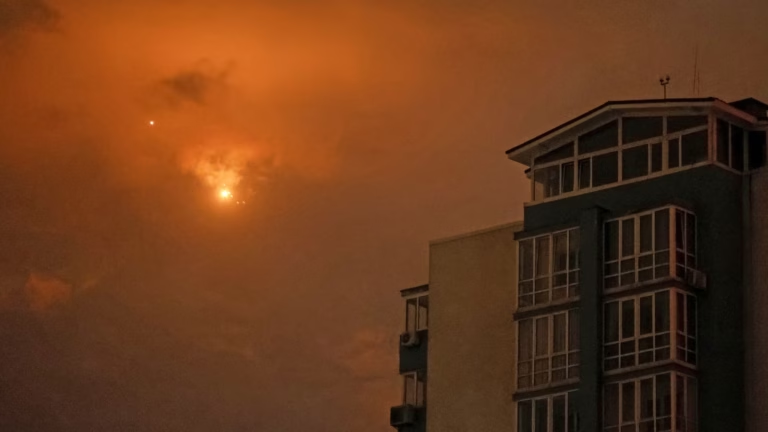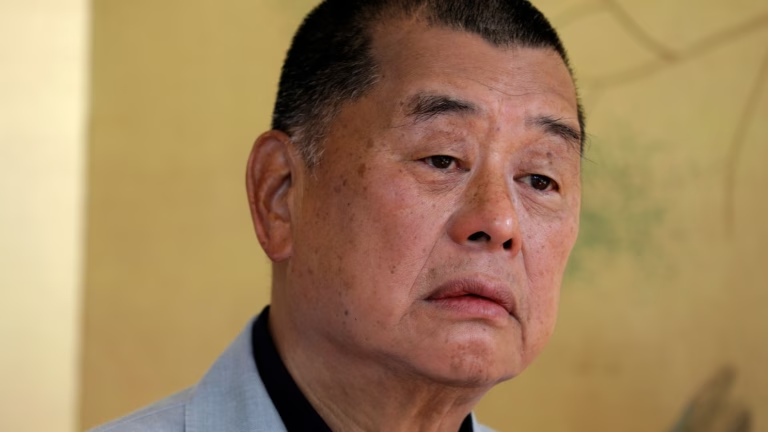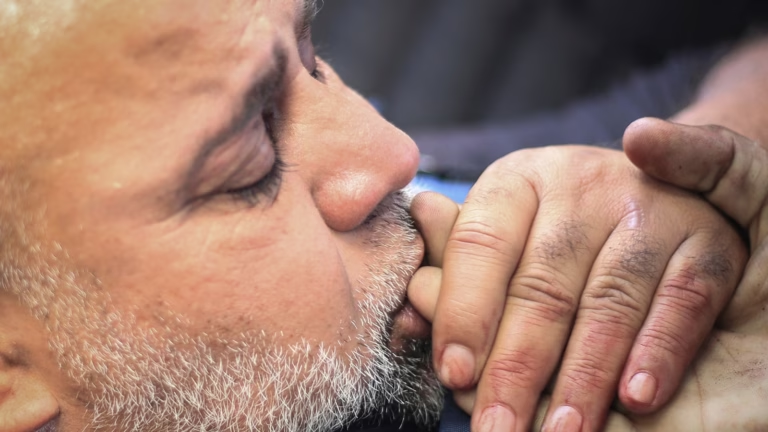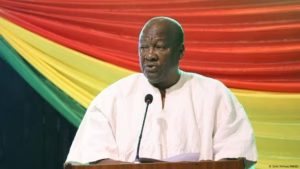Terror-stricken faces fill North Darfur’s displacement camps.
Despair fills the eyes of those recounting their 16-month siege survival in one of Sudan’s oldest cities.
Loved ones are trapped, armed violence spreads, and village after village is left in ashes.
Stories of extreme torture, rape, and forced starvation are shared with horrifying detail.
Sobbing women contemplate their future, elderly pray for overdue relief in shelters with little to no humanitarian aid.
Camp directors hand over lists with requests for clean water, medical supplies, and food. Even the white United Nations tarpaulin is scarce.
Village families build huts for themselves using frayed tent material to close stick-lined walls as shields from battles raging for regional control.
Instead of fleeing into nearby Chad, they wait for siege-lifting news and hope of a return.
But that hope may never materialize.
‘We could hear some of them being killed’
Bombs hit Al Fashir, war-wounded travel to the last functioning Tina Hospital, yet beds are empty.
The hospital cannot afford free or subsidized treatment for those needing it.
“It is so difficult. This hospital cannot care for a patient without money,” says Dr Usman Adam, overseeing an emaciated teenager with a gunshot wound in his stomach.
“We need support.
“Either medication or money to the victims – by anyhow, we need support.”
In nearby camps, women mourn brothers, fathers, and husbands killed, missing, or trapped in Al Fashir. Many faced RSF torture during their escape attempts.
“If you lack money for ransom, they take you to a room resembling an office, saying ‘if you have nothing we will kill you or worse'” says Zahra, a 20-year-old mother speaking at a makeshift school shelter in Tine.
“They beat the men, stole from them, and whipped them. We could hear some being killed as we women were rounded up on a mat and threatened. We gave them money but took other girls to a room — and we couldn’t tell if they were beaten or raped.”
The women around her on the mat echo Zahra’s anguish.
“They beat us, tortured us, humiliated us—everything you can imagine!” one yells out in tears.
A mother named Leila sits next to her four children, staring down. I ask if she hopes to return to Al Fashir, and she weakly agrees as nearby women shout “Yes! We will return by the grace of God.”
Leila’s eyes reflect the resignation of permanent loss. Her city, as she knows it, is gone.
Babies and young children silently stare from their laps. Many bear the signs of physical shock. An older woman on the mat takes us to see her infant grandson and his mother in their hut.
“We fled Al Fashir to Tawila camp while I was heavily pregnant,” says Nadeefa, as her son Mustafa cries on her lap, unable to focus his eyes.
“After I had given birth, we made the journey here. Mustafa was only 16 days old and could not handle the harsh conditions. As time went on, we realized he couldn’t see. We think he was blinded as a newborn on the road.”
Her mother and mother-in-law sit on the mat next to her and take turns trying to calm Mustafa down. Her mother-in-law Husna tells us that her own son, Mustafa’s father, is missing.
“We don’t know where my son is,” she says. “He disappeared as we fled.”
‘They killed my children’
Hawa, an elderly woman, shares her story with us in the same yard.
“These people [the RSF] killed my children. They killed my in-laws. They orphaned my grandchildren. They killed two of my sons.
“One of my daughters gave birth on the road and I brought her with me to this camp. I don’t have anything,” she says, trembling as she stands.
“They raped my two younger daughters in front of me. There is nothing more than that. They fled from shame and humiliation. I haven’t seen them since.”
Dr Afaf Ishaq, the camp director and emergency response room (ERR) volunteer, is sobbing nearby.
“I have handled thousands and thousands of cases. I am on the verge of a mental breakdown,” she says.
“Sometimes in the morning, I have my tea and forget that I need to eat or how to function. I just sit listening to testimony after testimony in my head and feel like I am hallucinating,”
Everyone we speak to points to her as a source of relief and help, but Dr Ishaq largely carries the burden alone. When sporadic financial support ends for the ERR community kitchens, she says people flock to her complaining of hunger.
Dr Ishaq lives alone in the camp after fleeing her home in Khartoum at the start of the war in April 2023. She says she quickly escaped after her husband joined the RSF.
Since then, she has been constantly reminded of the atrocities committed by her husband’s ranks in Khartoum, her hometown Al Fashir, and the ethnic violence they are carrying out across the region.
“The RSF focuses on ethnicity,” she says. “If you are from the Zaghawa, Massalit, Fur – from Darfuri tribes – you should be killed, you should be raped.”
“If they find that your mother or father are from another tribe like Rizeigat or Mahamid – they won’t rape you, they won’t touch you.”
A message for the West
In January, the Biden administration determined that the RSF are carrying out genocide in Darfur, 20 years after former US secretary of state Colin Powell made the declaration in 2004.
But the designation has done little to quell the violence.
Sudan’s government has accused the United Arab Emirates (UAE) of supplying arms and logistical support to the RSF. The UAE denies these claims but many on the ground in Darfur say its role in this war is accepted as fact.
The silence from the UAE’s allies in the West, including the UK and US, is felt loudly here – punctuated by gunfire and daily bombs.


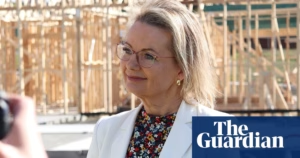
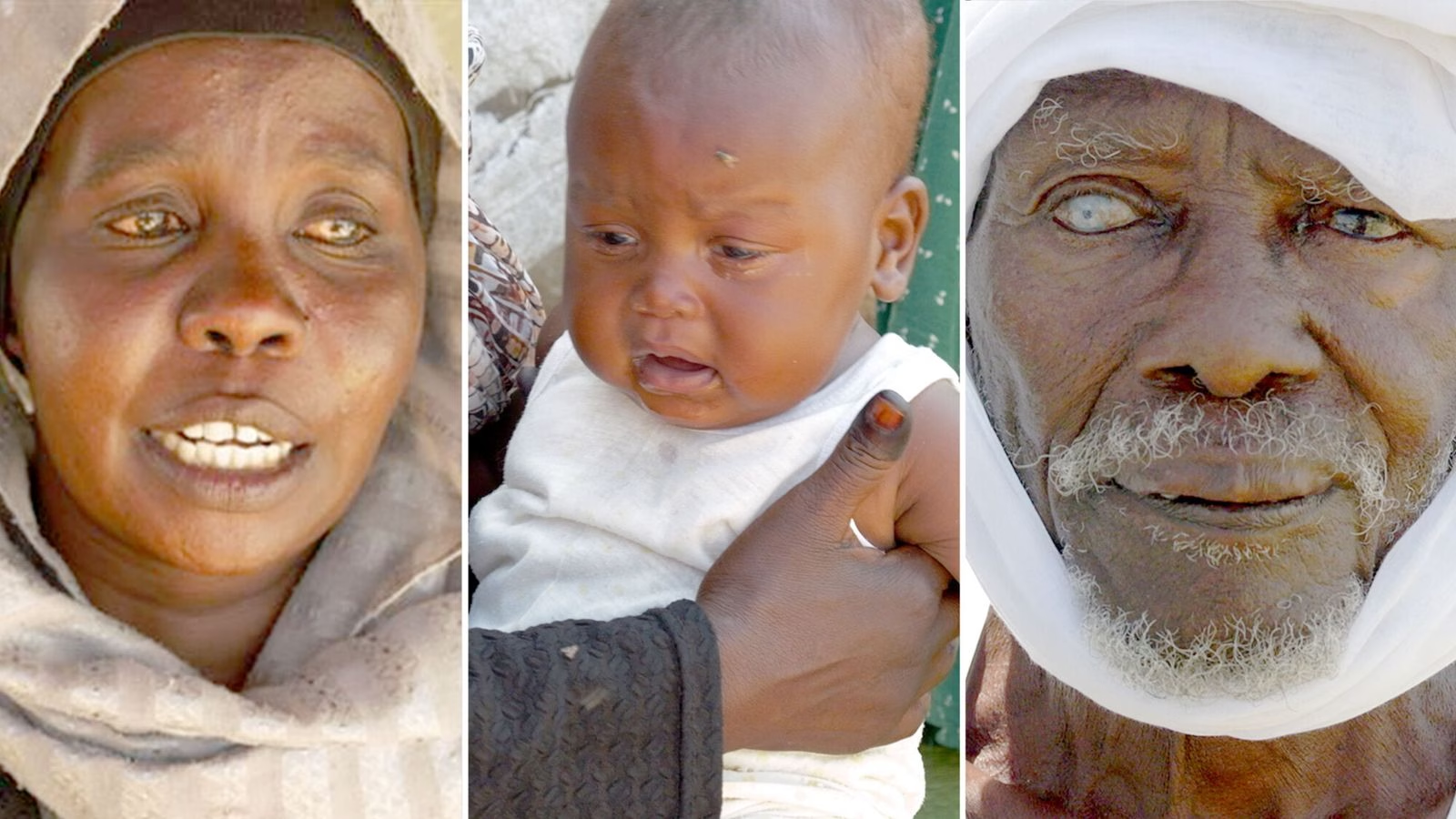

 Several mediation attempts failed to secure a humanitarian access mechanism or combat pauses.
Several mediation attempts failed to secure a humanitarian access mechanism or combat pauses.






